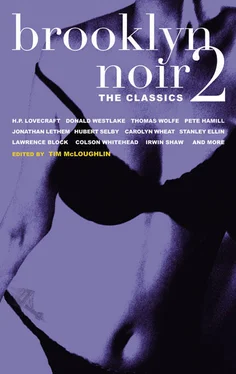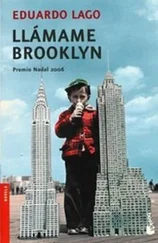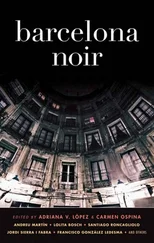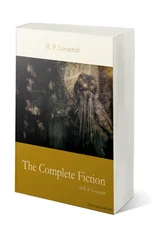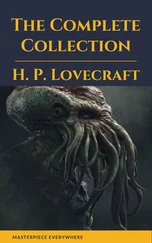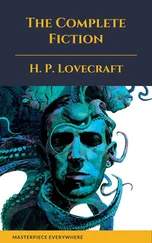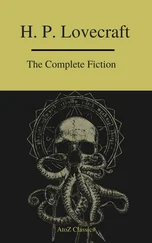H. Lovecraft - Brooklyn Noir 2
Здесь есть возможность читать онлайн «H. Lovecraft - Brooklyn Noir 2» весь текст электронной книги совершенно бесплатно (целиком полную версию без сокращений). В некоторых случаях можно слушать аудио, скачать через торрент в формате fb2 и присутствует краткое содержание. Год выпуска: 2005, ISBN: 2005, Издательство: Akashic Books, Жанр: Детектив, на английском языке. Описание произведения, (предисловие) а так же отзывы посетителей доступны на портале библиотеки ЛибКат.
- Название:Brooklyn Noir 2
- Автор:
- Издательство:Akashic Books
- Жанр:
- Год:2005
- ISBN:978-1888451764
- Рейтинг книги:4 / 5. Голосов: 1
-
Избранное:Добавить в избранное
- Отзывы:
-
Ваша оценка:
- 80
- 1
- 2
- 3
- 4
- 5
Brooklyn Noir 2: краткое содержание, описание и аннотация
Предлагаем к чтению аннотацию, описание, краткое содержание или предисловие (зависит от того, что написал сам автор книги «Brooklyn Noir 2»). Если вы не нашли необходимую информацию о книге — напишите в комментариях, мы постараемся отыскать её.
Brooklyn Noir 2 — читать онлайн бесплатно полную книгу (весь текст) целиком
Ниже представлен текст книги, разбитый по страницам. Система сохранения места последней прочитанной страницы, позволяет с удобством читать онлайн бесплатно книгу «Brooklyn Noir 2», без необходимости каждый раз заново искать на чём Вы остановились. Поставьте закладку, и сможете в любой момент перейти на страницу, на которой закончили чтение.
Интервал:
Закладка:
“And you helped me — don’t forget that part of it.”
“I won’t.”
“And I wouldn’t have gone away for it anyway, Matt. Not a chance. I’da beat it in court, only this way I don’t have to go to court. Look, this is just the booze talkin’, and we can forget it in the morning, right? I didn’t kill her, you didn’t accuse me, we’re still buddies, everything’s fine. Right?”
Blackouts are never there when you want them. I woke up the next day and remembered all of it, and I found myself wishing I didn’t. He’d killed his wife and he was getting away with it. And I’d helped him. I’d taken his money, and in return I’d shown him how to set one man up for suicide and pressure another into making a false confession.
And what was I going to do about it?
I couldn’t think of a thing. Any story I carried to the police would be speedily denied by Tommy and his lawyer, and all I had was the thinnest of hearsay evidence, my own client’s own words when he and I both had a skinful of booze. I went over it for a few days, looking for ways to shake something loose, and there was nothing. I could maybe interest a newspaper reporter, maybe get Tommy some press coverage that wouldn’t make him happy, but why? And to what purpose?
It rankled. But I would just have a couple of drinks, and then it wouldn’t rankle so much.
Angel Herrera pleaded guilty to burglary, and in return, the Brooklyn D.A.’s Office dropped all homicide charges. He went Upstate to serve five to ten.
And then I got a call in the middle of the night. I’d been sleeping a couple of hours, but the phone woke me and I groped for it. It took me a minute to recognize the voice on the other end.
It was Carolyn Cheatham.
“I had to call you,” she said, “on account of you’re a bourbon man and a gentleman. I owed it to you to call you.”
“What’s the matter?”
“He ditched me,” she said, “and he got me fired out of Tannahill and Company so he won’t have to look at me around the office. Once he didn’t need me to back up his story, he let go of me, and do you know he did it over the phone?”
“Carolyn—”
“It’s all in the note,” she said. “I’m leaving a note.”
“Look, don’t do anything yet,” I said. I was out of bed, fumbling for my clothes. “I’ll be right over. We’ll talk about it.”
“You can’t stop me, Matt.”
“I won’t try to stop you. We’ll talk first, and then you can do anything you want.”
The phone clicked in my ear.
I threw my clothes on, rushed over there, hoping it would be pills, something that took its time. I broke a small pane of glass in the downstairs door and let myself in, then used an old credit card to slip the bolt of her spring lock.
The room smelled of cordite. She was on the couch she’d passed out on the last time I saw her. The gun was still in her hand, limp at her side, and there was a black-rimmed hole in her temple.
There was a note, too. An empty bottle of Maker’s Mark stood on the coffee table, an empty glass beside it. The booze showed in her handwriting and in the sullen phrasing of the suicide note.
I read the note. I stood there for a few minutes, not for very long, and then I got a dish towel from the Pullman kitchen and wiped the bottle and the glass. I took another matching glass, rinsed it out and wiped it, and put it in the drainboard of the sink.
I stuffed the note in my pocket. I took the gun from her fingers, checked routinely for a pulse, then wrapped a sofa pillow around the gun to muffle its report. I fired one round into her chest, another into her open mouth.
I dropped the gun into a pocket and left.
They found the gun in Tommy Tillary’s house, stuffed between the cushions of the living-room sofa, clean of prints inside and out. Ballistics got a perfect match. I’d aimed for soft tissue with the round shot into her chest, because bullets can fragment on impact with bone. That was one reason I’d fired the extra shots. The other was to rule out the possibility of suicide.
After the story made the papers, I picked up the phone and called Drew Kaplan. “I don’t understand it,” I said. “He was free and clear; why the hell did he kill the girl?”
“Ask him yourself,” Kaplan said. He did not sound happy. “You want my opinion, he’s a lunatic. I honestly didn’t think he was. I figured maybe he killed his wife, maybe he didn’t. Not my job to try him. But I didn’t figure he was a homicidal maniac.”
“It’s certain he killed the girl?”
“Not much question. The gun’s pretty strong evidence. Talk about finding somebody with the smoking pistol in his hand, here it was in Tommy’s couch. The idiot.”
“Funny he kept it.”
“Maybe he had other people he wanted to shoot. Go figure a crazy man. No, the gun’s evidence, and there was a phone tip — a man called in the shooting, reported a man running out of there, and gave a description that fitted Tommy pretty well. Even had him wearing that red blazer he wears, tacky thing makes him look like an usher at the Paramount.”
“It sounds tough to square.”
“Well, somebody else’ll have to try to do it,” Kaplan said. “I told him I can’t defend him this time. What it amounts to, I wash my hands of him.”
I thought of that when I read that Angel Herrera got out just the other day. He served all ten years because he was as good at getting into trouble inside the walls as he’d been on the outside.
Somebody killed Tommy Tillary with a homemade knife after he’d served two years and three months of a manslaughter stretch. I wondered at the time if that was Herrera getting even, and I don’t suppose I’ll ever know. Maybe the checks stopped going to Santurce and Herrera took it the wrong way. Or maybe Tommy said the wrong thing to somebody else and said it face-to-face instead of over the phone.
I don’t think I’d do it that way now. I don’t drink anymore and the impulse to play God seems to have evaporated with the booze.
But then, a lot of things have changed. Billie left Armstrong’s not long after that, left New York, too; the last I heard, he was off drink himself, living in Sausalito and making candles. I ran into Dennis the other day in a bookstore on lower Fifth Avenue full of odd volumes on yoga and spiritualism and holistic healing. And Armstrong’s is scheduled to close the end of next month. The lease is up for renewal, and I suppose the next you know, the old joint’ll be another Korean fruit market.
I still light a candle now and then for Carolyn Cheatham and Miguelito Cruz. Not often. Just every once in a while.
The best-friend murder
by Donald E. Westlake
Park Slope
(Originally published in 1959)
Detective Abraham Levine of Brooklyn’s Forty-Third Precinct chewed on his pencil and glowered at the report he’d just written. He didn’t like it, he didn’t like it at all. It just didn’t feel right, and the more he thought about it the stronger the feeling became.
Levine was a short and stocky man, baggily-dressed from plain pipe racks. His face was sensitive, topped by salt-and-pepper gray hair chopped short in a military crewcut. At fifty-three, he had twenty-four years of duty on the police force, and was halfway through the heart-attack age range, a fact that had been bothering him for some time now. Every time he was reminded of death, he thought worriedly about the aging heart pumping away inside his chest.
And in his job, the reminders of death came often. Natural death, accidental death, and violent death.
This one was a violent death, and to Levine it felt wrong somewhere. He and his partner, Jack Crawley, had taken the call just after lunch. It was from one of the patrolmen in Prospect Park, a patrolman named Tanner. A man giving his name as Larry Perkins had walked up to Tanner in the park and announced that he had just poisoned his best friend. Tanner went with him, found a dead body in the apartment Perkins had led him to, and called in. Levine and Crawley, having just walked into the station after lunch, were given the call. They turned around and walked back out again.
Читать дальшеИнтервал:
Закладка:
Похожие книги на «Brooklyn Noir 2»
Представляем Вашему вниманию похожие книги на «Brooklyn Noir 2» списком для выбора. Мы отобрали схожую по названию и смыслу литературу в надежде предоставить читателям больше вариантов отыскать новые, интересные, ещё непрочитанные произведения.
Обсуждение, отзывы о книге «Brooklyn Noir 2» и просто собственные мнения читателей. Оставьте ваши комментарии, напишите, что Вы думаете о произведении, его смысле или главных героях. Укажите что конкретно понравилось, а что нет, и почему Вы так считаете.
